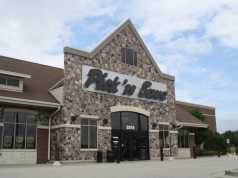MADISON – July 25, 2007 — Governor Jim Doyle today announced “Homeward Wisconsin,” a plan to end homelessness in Wisconsin in 10 years by addressing reasons for homelessness, providing job service outreach, expanding education and access to jobs programs, and assisting adolescents as they transition from foster care. Department of Commerce (Commerce) Secretary Mary Burke presented the plan on behalf of the Governor at the Wisconsin Conference on Homelessness at the Ho-Chunk Casino, Hotel and Convention Center in Wisconsin Dells.
“A home is one of the most basic needs of our families,” Governor Doyle said. “Through Homeward Wisconsin, we are ensuring that we have a comprehensive, coordinated plan that maximizes our efforts – from the local, county, state, and federal levels together with social service providers, every step of the way. Together, we can help all Wisconsin families have a roof over their heads.”
In August 2004, Governor Doyle signed Executive Order 66 creating the Inter-Agency Council on Homelessness. Members included non-profit homeless service organizations, WHEDA, the departments of Corrections, Commerce, Workforce Development, Veterans’ Affairs and Health and Family Services. The council’s charge was to conduct a comprehensive review of issues, opportunities and resources to identify responsible agencies and make recommendations for actions leading to:
- Increased availability/access to housing for homeless individuals and families;
- Improved access/expanding services for homeless individuals and families;
- Improved coordination/planning between state departments;
- Improved and expanded access to federal resources;
- Enhanced homeless prevention efforts;
- Continued improvement of data collection; and
- Outcome-based performance standards
In its deliberations, the Council followed five principles:
- Strategies should reduce not only the occurrence homelessness but also the recidivism characteristic of chronic homelessness.
- Strategies should focus on improving collaboration and funding utilization so that issues can be comprehensively addressed at a person’s first homelessness episode.
- State departments should not only work together to implement the plan but also set an example of effective collaboration for local governments and agencies.
- Reducing homelessness not only enhances the quality of life for individuals but also strengthens their communities.
- Council members should educate local and state leaders, service providers, and the public on homelessness issues and encourage early intervention to assist homeless persons.
The Homeward Wisconsin Plan sets forward strategies and action items. Among them are:
- Develop integrated treatment of homeless persons with more than one medical diagnosis
- Provide Job Service outreach to chronically homeless persons
- Explore the expansion of education and access-to-jobs programs to homeless persons
- Develop programs to assist adolescents as they transition out of foster care
The Wisconsin Conference on Homelessness, hosted by Commerce’s Division of Housing and Community Development, featured opening keynote remarks by Ed Stellon and Scott Peterson from the Midwest Harm Reduction institute. Commerce Secretary Mary Burke offered the lunchtime keynote presentation on Homeward Wisconsin.
For more information about Commerce housing programs, contact Marty Evanson, Commerce, 608/267-2713.
The following served on Gov. Jim Doyle’s Interagency Council on Homelessness:
- Bernardine Juno, Executive Director
Hebron House of Hospitality, Inc. and Council Co-Chair - Chris Gunst, Executive Assistant, WHEDA
- Anthony Streveler
Department of Corrections - Jeanne Lowrey, Nurse and Outreach Worker with Red Cross
- Lee Carroll, Executive Director
Health Care for the Homeless of Milwaukee - Ken Grant, Director
Veterans Assistance Program
Department of Veteran’s Affairs - Sinikka Santala, Administrator
Division of Disability and Elderly Services
Department of Health and Family Services - William (Billy Bob) Grahn, Director
Red Road House - Bob Cocroft, Retired Brigadier General
CEO – Center for Veterans Issues - Ron Schnyder
Executive Director
North Central Community Action Program - Mary Maronek, Education Consultant
for Homeless Children and Youth
Department of Public Instruction - Adam Smith, Program Coordinator
Division of Housing and Community Development
Bureau of Supportive Housing - Judith Wilcox, Council Co-Chair and staff to the Council
Section Chief, Special Needs Housing
Department of Commerce








